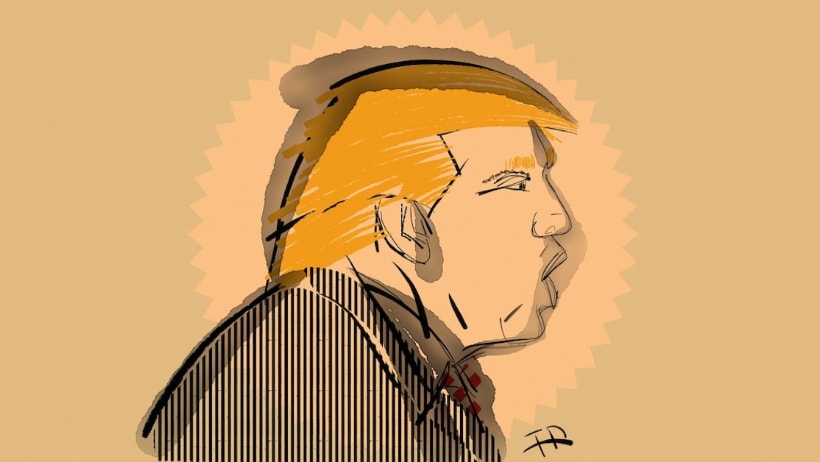Today we watch our nation undergo a major transition in leadership. On the one hand, it’s perfectly normal. It’s a quadrennial tradition, part of the fabric of our country. On the other hand, parts of this transition feel anything but normal. For eight years we’ve lived as citizens of the Obama administration. We had the routine of President Obama, a well-polished speaker who placed great focus on the “Torah” of hope and change for a better future. Whether or not he was the candidate you voted for, by the time he left office, he was at least the status quo, and we knew his policies and politics. In contrast, now we stand on the brink of a transition where there are many, many unknown variables.

This is obviously not the first transition of power we have witnessed, and it won’t be the last, but it does remind me of this week’s Torah portion, parshat Shemot. Our parshah, which begins the second book of the Torah, illustrates for us how skewed our own perception of self can be. This parshah serves as the turning point between the leadership of Abraham, Isaac, and Jacob to that of Moshe. Shemot leads us quickly through the change in leadership in Egypt as a new Pharaoh who isn’t so keen on the Israelites decrees that all males born should be put to death. Thankfully the midwives ignore this decree, and Moshe is kept alive. As an adopted Egyptian, Moshe joins the palace, but later learns he’s an Israelite.
There are two parallels in particular between the presidential inauguration and the narrative of Shemot that stand out to me. Chapter 1, verse 8 of the book of Exodus states, “And there arose a new king over Egypt, one who did not know Joseph.” This verse clearly speaks to the unease that comes with the transition of power to a new leader who does not know and cannot sympathize with the experiences of a particular minority. This new king was out of touch, and that was more than a little unnerving to those living under his leadership. And the first thing this king does is legislate strict rules and laws against the groups he does not understand. Instead of trying to get to know them, understand them, or even relate to anyone else outside himself, he simply places restrictions on their lives.
Later in the story we learn specifically of Shifra and Puah, the two midwives who resisted and disregarded the new pharaoh’s laws. They stood strong and tried to save as many of the Israelite babies as they could, including Moses, who ends up as the leader of the resistance. The bravery of Shifra and Puah then inspires the bravery of others. Their desire to stand up and fight is the model for resistance. Take what you will from these analogies; however, I am not trying to compare and contrast Biblical and modern leaders. To me, this is much more an illustration of how we as a society adapt, evolve, resist, and rally under new leadership.
Transition can be difficult and scary, a point I’ve brought up before in these writings. This week we had to transition back into the outside world after seven days of being stuck in our home following a crazy snowstorm that blanketed Portland. While we were only snowed in for a week, it doesn’t take much to throw your routine out of whack. It was a difficult morning remembering to pack up the diapers and milk for the baby, get the preschooler dressed and fed, and have everyone out the door on time. Then again, sometimes that reset is helpful. It may offer a new perspective or reveal ways you can make the routine even smoother and more efficient.
As we prepare for this major political transition, may we take it as an opportunity to re-examine our own routines, our own struggles. Perhaps this is the time to grow. As author and speaker Karen Kaiser Clark says, “Life is change. Growth is optional. Choose wisely.” Shabbat shalom.
-Rabbi Eve Posen
Source: A Change is Gonna Come – Parshat Shemot 5777 – Rabbi Eve Posen



